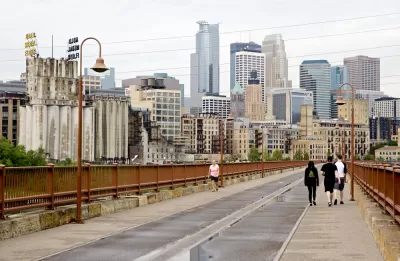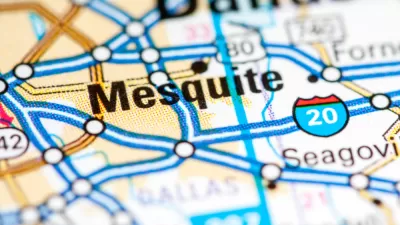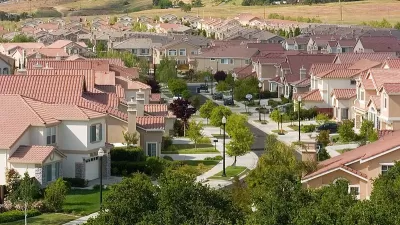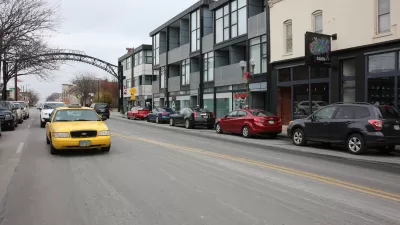A pair of articles from the Twin Cities, revealing the racist motivations of exclusionary zoning.

Discussions about neighborhood character, and zoning codes used to protect it, have the same effect as racial covenants, according to an article by Gretchen Brown.
While zoning codes often specifically state the desire to protect neighborhood character, such as an example cited from St. Paul, Minnesota, it's often wealthy, white homeowners who decide what neighborhood character means, and how and when to use zoning to protect it, according to Brown.
"While wealthy communities were able to use zoning to their advantage — preserving their property values, and controlling development of schools and businesses, poor communities of color are often burdened by what's called "expulsive zoning," living next to industrial and hazardous waste sites and landfills, and without access to public parks and grocery stores," writes Brown, before citing examples from cities like St. Paul and Charleston, South Carolina.
Brown is writing in St. Paul, where a majority of residents are renters, and where the neighboring city of Minneapolis recently took the ambitious step to ban restrictive single-family zoning in the entire city to counteract the status quo of zoning that protects wealthy, entrenched, white interests at the expense of other groups.
Despite Minneapolis' recent actions to overcome its legacy of racism by ending single-family zoning as an exclusionary tool in residential neighborhoods, the city has a long history of racist practices, as detailed in another recent article, this one by Julian Agyeman.
The article by Agyeman focuses in particular on the work of the University of Minnesota’s Mapping Prejudice project, which is devoted to "shedding new light on the role that racist barriers to home ownership have had on segregation in the city."
But Agyeman also has expertise to bring to the table to supplement the insights offered by Mapping Prejudice about the racist tradition of planning and zoning in the United States:
As a scholar of urban planning, I know that Minneapolis, far from being an outlier in segregation, represents the norm. Across the U.S., urban planning is still used by some as the spatial toolkit, consisting of a set of policies and practices, for maintaining white supremacy. But urban planners of color, especially, are pointing out ways to reimagine inclusive urban spaces by dismantling the legacy of racist planning, housing and infrastructure policies.
Both of these article were published in the wake of the civil unrest that has responded to the killing of George Floyd by police officers in Minneapolis, so the local situation is obviously informative of the broader discussion happening about how the planning status quo contributes to racism.
Both articles were published before, however, a series of tweets by president Trump explicitly stated the worst exclusionary and discriminatory motivations of traditional zoning practice in the United States.
FULL STORY: How Discussions of 'Neighborhood Character' Reinforce Structural Racism

Planetizen Federal Action Tracker
A weekly monitor of how Trump’s orders and actions are impacting planners and planning in America.

Map: Where Senate Republicans Want to Sell Your Public Lands
For public land advocates, the Senate Republicans’ proposal to sell millions of acres of public land in the West is “the biggest fight of their careers.”

Restaurant Patios Were a Pandemic Win — Why Were They so Hard to Keep?
Social distancing requirements and changes in travel patterns prompted cities to pilot new uses for street and sidewalk space. Then it got complicated.

Platform Pilsner: Vancouver Transit Agency Releases... a Beer?
TransLink will receive a portion of every sale of the four-pack.

Toronto Weighs Cheaper Transit, Parking Hikes for Major Events
Special event rates would take effect during large festivals, sports games and concerts to ‘discourage driving, manage congestion and free up space for transit.”

Berlin to Consider Car-Free Zone Larger Than Manhattan
The area bound by the 22-mile Ringbahn would still allow 12 uses of a private automobile per year per person, and several other exemptions.
Urban Design for Planners 1: Software Tools
This six-course series explores essential urban design concepts using open source software and equips planners with the tools they need to participate fully in the urban design process.
Planning for Universal Design
Learn the tools for implementing Universal Design in planning regulations.
Heyer Gruel & Associates PA
JM Goldson LLC
Custer County Colorado
City of Camden Redevelopment Agency
City of Astoria
Transportation Research & Education Center (TREC) at Portland State University
Camden Redevelopment Agency
City of Claremont
Municipality of Princeton (NJ)





























